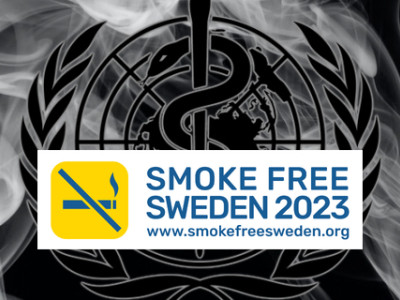“As a public health agency,” writes Gottlieb, “there is no greater impact we can have to improve the health of our nation than to significantly reduce the rate of tobacco-related disease and death.”
Disappointingly, at no place in the statement, or the Nicotine Steering Committee’s draft guidance, does the relationship between the boom in vaping and the on-going decline in smoking get mentioned.
It recommends a continuation of the mouse-bothering that has become popular in certain circles of poor quality science, but at least recognises that the obscene whole-body chamber experiments have no role to play: “The rodent species be dosed by a non-inhalation route to allow for systemic toxicity assessment,” because, “rodents are primarily nose breathers and may not receive adequate buccal and oral exposure to the drug relevant to clinical use of orally inhaled nicotine-containing drug products.”
And then there’s the unequivocal support for the pharmaceutical industry: “The development of novel NRT products, regulated as new drugs, is a critical part of our overall strategy on nicotine.”
The aim is to make a twin approach of reducing nicotine content in tobacco cigarettes while encouraging a market for alternative products like ecigs and traditional NRT products. To that end Gottlieb has temporarily spared the vape industry the onerous regulations by postponing them until 2022 and, in doing so, prevented the almost inevitable crushing of the American independent vape market.
But some question if this was enough. Guy Bentley writes in the Washington Examiner: “No tangible progress has been made to ensure e-cigarettes can enter and remain on the market. In fact, whenever the FDA does discuss e-cigarettes, it heavily couches the conversation by noting the potential danger they pose to minors.”
Gottlieb continued: “We want to explore what new steps we can take using our regulatory policies to enable opportunities for innovation, while making sure these products are demonstrated to be safe and effective for their intended use.”
The difference between what is not happening and Gottlieb’s aims highlight the gap between the words of promise and the lack of deeds to back them up. The approval process to bring products to market still ensures that only the wealthy can afford to introduce new products – and on a timescale that hampers innovation.
Paul Blair, also writing in the Examiner, agrees: “For more than a year, the Food and Drug Administration has hung the start-up vapour industry out to dry with anticipation for a more sane and rational approach to the regulation of electronic cigarettes.”
“There hasn’t been any clarity, transparency, or efficiency in the approval process for products. The only efforts surrounding e-cigarettes have included a veiled threat of banning flavoured ones and several statements about concerns over youth use.”
Other commentators, such as Dick Puddlecoat, go even further and say this is handing the market over to Big Pharma: “when you look at the guidance, it is quite clearly intended for a different subset of businesses than those which currently provide e-cigs for the US market.”
“Many were of the opinion when Gottlieb took over the job that he'd just end up being a pharma shill. He seems to be living up to those predictions quite spectacularly so far.”
The question remains, will Scott Gottlieb stand up to the pharmaceutical industry influence and recognise vaping for what it is? Will he accept the positive research and the opinions of experts or will he continue to bow to the Big P spin campaign?
Moreover, as Jeff Stier writes for Consumer Choice, it needs a comprehensive plan to be in place, “giving time for investors to invest, allowing innovators to innovate, manufacturers to comply with the regulatory process, and the agency and public health groups to undo misperceptions about nicotine, before nicotine levels in cigarettes might be lowered. Doing so is essential in order to minimize a black market for full nicotine cigarettes. The agency should look to Public Health England for guidance on how this can be done effectively, given the UK’s recent unprecedented successes in reducing smoking rates by embracing tobacco harm reduction.”
Scott Gottlieb might have until 2022 to make a proper decision – but those dying from tobacco-related diseases don’t.
Dave Cross
Journalist at POTVDave is a freelance writer; with articles on music, motorbikes, football, pop-science, vaping and tobacco harm reduction in Sounds, Melody Maker, UBG, AWoL, Bike, When Saturday Comes, Vape News Magazine, and syndicated across the Johnston Press group. He was published in an anthology of “Greatest Football Writing”, but still believes this was a mistake. Dave contributes sketches to comedy shows and used to co-host a radio sketch show. He’s worked with numerous vape companies to develop content for their websites.
Join the discussion
Harm Reduction For The Rich
The United Kingdom risks becoming a harm reduction country only for the wealthy, according to Michael Landl of the World Vapers’ Alliance
A Missed Opportunity at COP10
The Smoke Free Sweden movement says that COP10 was a missed opportunity to save millions of lives
COP10: Promote Tobacco Harm Reduction
Experts with Smoke Free Sweden are emphasising the urgent need for a Tobacco Harm Reduction approach at COP10
EU Commission Called Out
The World Vapers' Alliance calls out the EU Commission's hostile stance on Tobacco Harm Reduction in light of Tobacco Product Directive consultation findings












